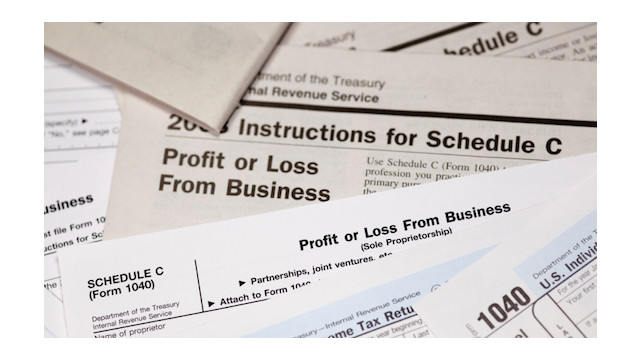With 2019 about to come to a close, and businesses still adapting to legislative and regulatory changes from the Tax Cuts and Jobs Act (TCJA), several tax planning opportunities are still available to help reduce a business’s tax burden. In this artcile, we take a look at a few year-end tax strategies that can help businesses reduce their 2019 federal income tax bill.
- Defer Income until 2020 – Although C corporations enjoy a flat 21 percent statutory tax rate and pass-through entities are taxed at lower rates following the TCJA, income deferral remains an important consideration in business tax planning. If a taxpayer expects taxable income to be higher in 2019 rather than 2020, or if the taxpayer anticipates being taxed at a higher rate in 2019 than 2020, the taxpayer may benefit by deferring income into 2020. Of course, if a business owner is subject to the individual alternative minimum tax (AMT), or an S corporation is subject to the passive investment income tax, this type of standard tax planning may not be warranted.
- Maximize the Section 199A QBI Deduction – Taxpayers other than corporations operating a “qualified trade or business” (QTB) may be eligible for up to a 20 percent deduction of qualified business income (QBI). However, for 2019, if taxable income exceeds certain amounts ($321,400 for married filing joint, $160,700 for single or head of household, and $160,725 for married filing separate), the deduction may be limited based on whether the taxpayer is engaged in a service-type trade or business such as accounting, law, health, or consulting; the amount of W-2 wages paid by the business; and/or the basis of certain qualified property held by the business. In order to stay under the taxable income limits and maximize the deduction, consider deferring income into 2020.
- Take Advantage of Bonus Depreciation – For property acquired after September 27, 2017, and placed in service during 2019, a taxpayer may deduct 100 percent of the cost of qualified property in 2019. Bonus depreciation applies to new as well as used property, so taxpayers planning to acquire a business should consider whether structuring the acquisition as an asset acquisition rather than a stock acquisition may be advantageous.
- Consider Equipment Purchases – Businesses purchasing equipment may make a “§179 election” which allows for a current deduction (i.e., expense) of otherwise depreciable business property, including computer software and qualified real property. Certain improvements to nonresidential real property (roofs, heating, ventilation, and air-conditioning property, fire protection and alarm systems, and security systems), that may not be eligible for bonus depreciation, are eligible for the §179 election. For 2019, taxpayers may elect to expense up to $1,020,000 of equipment costs (with a phase-out for purchases exceeding $2,550,000).
- Purchase New Business Vehicles Weighing over 6,000 Pounds – Another popular strategy is to purchase a vehicle for business purposes that exceeds statutory depreciation limits (i.e., a vehicle rated over 6,000 pounds). Doing so would not subject the purchase to the $10,100 limit for depreciation for cars, vans, and trucks (if bonus depreciation is taken, the amount increases to $18,100). As a result, the vehicle would qualify for the full equipment expensing dollar amount. However, for SUVs, the expensing amount is limited to $25,000.
- Accelerate Bad Debts – If a business uses the accrual method, accounts receivable should be analyzed and those receivables that are totally or partially worthless should be written off. By identifying specific bad debts, the taxpayer should be entitled to a deduction. The taxpayer may be able to complete this process after year’s end if the write-off is reflected in year-end financial statements.
- Accelerate 2019 Employee Bonuses – In general, an employer’s liability for employee bonuses accrues and is deductible for the current year even though the bonus is paid in the following year, if all the events are satisfied that fix the liability and the employer does not have a unilateral right to cancel the bonus prior to payment. Generally, the employer may accelerate the deduction into the current year while the employees will report the income in the following year if they are cash method taxpayers. Furthermore, any compensation arrangement that defers payment will be currently deductible only if paid within 2½ months after the employer’s year-end.
- Accelerate Tax Payments into 2019 – For taxpayers that pay payroll and other taxes on a quarterly basis, consider accelerating 2019 4th quarter payroll and other taxes at December 31 year-end instead of waiting until January 15, 2020. Also consider accelerating state income and other types of tax payments if your business might benefit from a 2019 deduction.
Take Action Now to Realize Tax Savings Before It’s too Late
These are just a few of the options businesses have to minimize their 2019 tax liability, but they must act fast if they want to obtain these savings. Tax professionals play a crucial role in helping business owners navigate tax law changes and are well-positioned to encourage their clients to take action before time runs out.
========
Kenneth S. Savell, Esq., J.D., L.L.M, is Senior Tax Analyst at Bloomberg Tax & Accounting.
Thanks for reading CPA Practice Advisor!
Subscribe Already registered? Log In
Need more information? Read the FAQs




